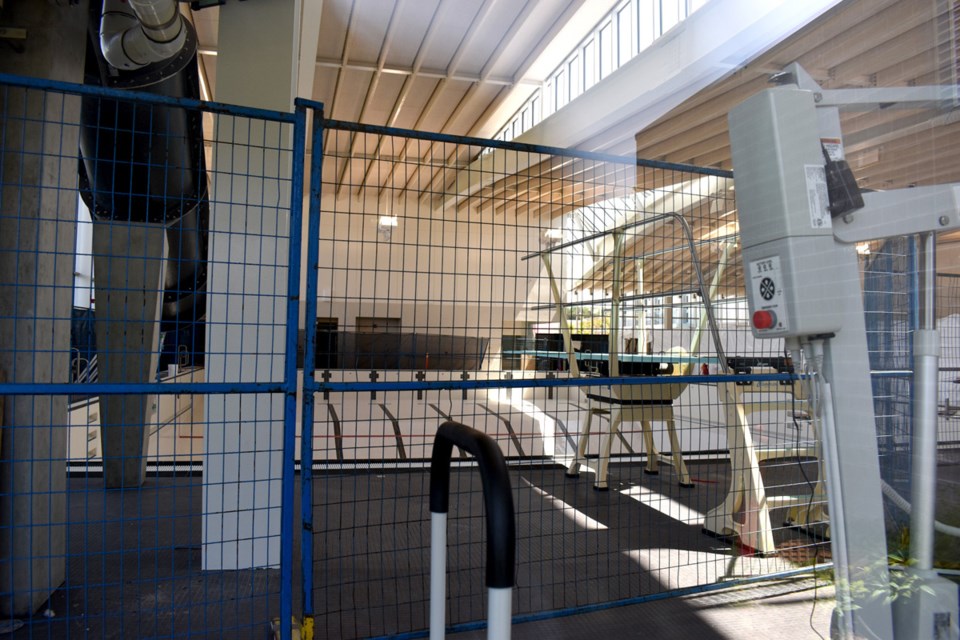The level of secrecy surrounding the construction of Richmond’s still unopened Minoru pool has surprised even the investigator who regularly oversees freedom of information (FOI) requests.
“In my experience, I’ve never seen such a volume of records being section 14’d,” said the investigator with the Office of the Information and Privacy Commissioner (OIPC) who didn’t want her name used.
Section 14 refers to the part of the privacy act that allows exclusion based on solicitor-client privilege.
The Richmond News has been trying to find out why the Minoru Centre for Active Living (MCAL) — with a seniors centre, aquatic and fitness centre — was almost two years late in opening.
The city has released few details, citing solicitor-client privilege as well as other privacy concerns. After an FOI request turned up virtually nothing, the News asked for a review by the OIPC and last week they called to say the city won’t give them any of the documents either — something never seen before by the investigator assigned to handle the News’ review.
When the OIPC can’t see the documents, it’s hard to evaluate whether they should be released or not, the investigator added. She is now waiting for the city to send descriptions of the documents so she can try to assess them.
Two recent court cases are used to justify withholding documents when solicitor-client privilege is claimed.
They state the information commissioner didn’t have the right to examine documents to see whether something was or was not subject to solicitor-client privilege because that would breach solicitor-client privilege — something that is hard to argue against, explained Sean Holman, a former B.C. legislative reporter and currently a journalism professor at Mount Royal University in Calgary, who specializes in freedom of information issues.
Information is partly about control, Holman said, and when a government holds back information, it is paternalistic — a “papa knows best type of government.”
“In this particular circumstance, if people knew ... (what) the reason was for this project going so sideways, then they would be better able to exert control and make better decisions about the elected officials, or unelected officials, who were responsible for this,” Holman said.
The challenge of Canadian FOI laws is they were built to apply American principles of transparency to Canadian political and government systems that are fundamentally resistant to transparency, he said.
“There was never any real attempt to change the fundamentally secretive nature of our political system and our governmental system,” Holman said.
FOI laws in Canada have been set up to serve the federal and provincial levels of government but this secrecy is starting to permeate local governments as well, Holman added.
For example, records about worker and environment safety infractions at mines is available in the U.S., but not in Canada —this came up during the Mount Polley mine disaster in B.C. in 2014.
Exclusions were built into the FOI legislation to accommodate this tendency toward secrecy, Holman said, and have been “weaponized” to hold back information from the public.
“I think that’s what’s happening in Richmond,” Holman said, adding that many local jurisdictions are increasingly clamping down on access to information.
This is something he believes media organizations need to think about – how government and corporate secrecy impacts the demand for local news.
“Because, if the public can’t do anything with the information we provide, if they can’t actually effect change with it, what exactly is the purpose of what we do?” Holman said.
The seniors centre at the MCAL opened last March, but the aquatic centre remains closed as a crack is being fixed in one of the pools. The fitness centre opened on Jan. 1.



